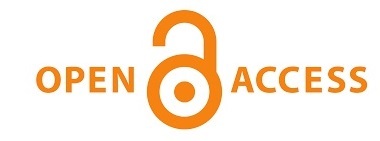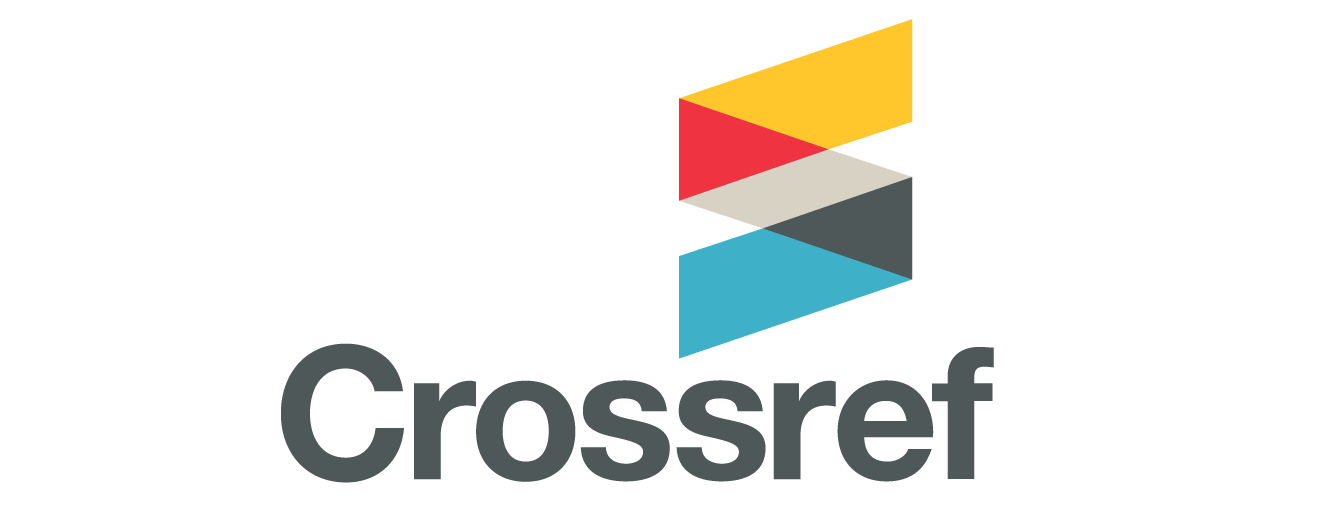Актуальні питання оцінювання суспільного впливу наукових досліджень
DOI:
https://doi.org/10.15407/sofs2024.02.052Ключові слова:
суспільний вплив наукових досліджень, участь у дослідженнях, оцінювання наукових досліджень, альтернативні метрики, Altmetric, Altmetric Attention Score, Dimensions, SciVal, Lens, дослідження у галузі масмедіа та комунікаційАнотація
Протягом останнього десятиліття об’єктивне оцінювання наукових досліджень набуває дедалі більшої актуальності з огляду на виклики відкритої науки, сприяння підвищенню продуктивності наукових досліджень, прозорості та неупередженості оцінки дослідників. Але визначення якості і суспільного впливу наукових досліджень ускладнюється через їх відмінності залежно від галузі досліджень чи країни. Численні ініціативи потребують нових підходів до вимірювання суспільного впливу наукових досліджень, які забезпечуватимуть баланс між кількісними та якісними показниками і використання нормалізованих за галуззю та альтернативних метрик, особливо з урахуванням викликів відкритої науки. У статті надано огляд сучасних методів визначення суспільного впливу наукових досліджень у різних країнах світу (на прикладі Великої Британії, Іспанії, США, Канади, Австралії) та альтернативних метрик й інструментарію для вимірювання такого впливу (Dimensions, Th e Lens, SciVal), зокрема для досліджень у галузі масмедіа та комунікацій. Використано загальні (абстрагування, аналіз і синтез, аналіз джерел тощо) і спеціальні методи (контент-аналіз, аналіз медіа-дискурсу), а також окремі показники альтметрики. Визначено топ-10 статей із найвищим показником Altmetric Attention Score (AAS) і найвищим показником цитування за даними Dimensions. Виявлено, що найвищі показники AAS належать статтям про COVID-19, що вказує на підвищену суспільну увагу до теми світової пандемії. Для вимірювання суспільного інтересу в альтметричних показниках впливу обрано тематику російсько-української війни та відповідні дослідження (публікації 2022—2023 рр.) у галузі масмедіа та комунікацій (за базою Dimensions). З-серед 514 статей визначено 10 із найвищим показником AAS і наведено кількість цитувань для них. Виявлено, що вплив досліджень у галузі масмедіа та комунікацій навіть на актуальну тему війни у XXI столітті в центрі Європи набагато менший ніж медичних досліджень, а також має суттєво нижчу оцінку показника цитування. Зазначено, що недоліки альтметрики пов’язані з не цілком прозорою методологію та прихованим алгоритмом підрахунку: альтметрика є показником онлайн-уваги до статті (не завжди позитивної), а не якості відповідного дослідження, вона не придатна для порівняння статей з різних галузей наук.
Посилання
Yaroshenko, T.O., & Zharinova, A.H. (2023). Scientific citation: historical and theoretical landscape. Science and Science of Science, 3 (121), 41—67. https://doi.org/10.15407/sofs2023.03.041 [in Ukrainian].
Yaroshenko, T., Serbin, O., & Yaroshenko, O. (2022). Open science: the role of universities and libraries in modern changes in scientific communication. Digital platform: information technologies in the socio-cultural sphere, 5 (2), 277–292. https://doi.org/10.31866/2617-796X.5.2.2022.270132 [in Ukrainian].
Garfield, E. (1979). Citation Indexing: Its Theory and Application in Science, Technology, and Humanities. New York, NY: Wiley.
Elkana, Y. (1978). Toward a Metric of Science: The Advent of Science Indicators. New York, NY: Wiley.
Curry, S., Gadd, E. & Wilsdon, J. (2022). Harnessing the Metric Tide: indicators, infrastructures & priorities for UK responsible research assessment. Report of The Metric Tide Revisited panel, December 2022. https://doi.org/10.6084/m9.figshare.21701624
Dobrov, G. (1989). Science about science. Introduction to General Science of Science. Kyiv: Nauk. dumka [in Russian].
Malitsky, B. (2017). Who and how should assess research results of a scientist. Science and Science of Science, 3 (97), 34—53 https://doi.org/10.15407/sofs2017.03.034 [in Russian].
Malitsky, B. (2007). Applied science studies. Kyiv: Phenix [in Ukrainian].
Malitsky, B., Popovych O., Soloviov V., Yegorov, V., & Bulkin, I. (2004). The rational R&D financing: A premise for building up the knowledge-based society in Ukraine. Kyiv: Phenix [in Ukrainian].
Popovych O., & Ryzhko L. (2022). Modern challenges to the research system and ways to overcome them. Science and Science of Science, 1 (115), 88—104. https://doi.org/10.15407/sofs2022.01.088 [in Ukrainian].
Rybachuk, V. (2013). Methodological problems in the productivity assessment of research activities. Science and Science of Science, 2, 46—52 [in Ukrainian].
Yehorov, I.Yu. (Ed.) (2016). Indicators of R&D and innovation: international standards and the practice of their use in Ukraine. Kyiv: Institute of Economics and Forecasting of the National Academy of Sciences of Ukraine [in Ukrainian].
Gasanov, S., Kotlyarevsky, Y., Melnikov, O., Kniaziev, S., Shtangret, A., & Semenyuk, E. (2019). Methodological approaches to labor norming in scholarly research and development. Science and Innovation, 15 (1), 5—24. https://doi.org/10.15407/scine15.01.005
Horovyi, V.M. (2015). Criteria for the quality of scientific research in the context of ensuring national interests. Visn. Nac. Akad. Nauk Ukr., 6, 74—80 [in Ukrainian].
Pavliuk, K.V., & Kaminska, O.S. (2019). Foreign experience in assessing the quality of scientific activity. RFI Scientific Papers, 3, 25—40 [in Ukrainian]. https://doi.org/10.33763/npndfi2019.03.025
Pylypenko, H.M., & Fedorova, N.Ye. (2020). Science as a factor of socio-economic development of society. Dnipro: NTU “DP” [in Ukrainian].
Yaroshenko, T., & Yaroshenko, O. (2020). Highly cited documents of Ukrainian scientists in citation databases: correlation of bibliometric indicators. Ukrainian Journal of Library Science and Information Sciences, 5, 108—126. https://doi.org/10.31866/2616-7654.5.2020.205734 [in Ukrainian].
Reed, M. (2018). The research impact handbook. 2nd edn. Fast Track Impact, Huntly.
Reed, M., & Cairney, P. (2021). Using research to influence policy: a handbook for researchers. Leeds: University of Leeds.
Vutsova, A., Yalamov, T., & Arabadzhieva, M. (2023). In search of excellent research assessment. Baden-Baden: Nomos. https://doi.org/10.5771/9783748937203
Alstete, J.W., Beutell, N.J., & Meyer, J.P. (2018). Evaluating scholarship and research impact: history, practices, and policy development. Bingley, UK: Emerald Group Publishing Limited. https://doi.org/10.1108/9781787563872
Roemer, R.C. & Borchardt, R. (2015). Meaningful Metrics: A 21st Century Librarian’s Guide to Bibliometrics, Altmetrics, and Research Impact. Chicago: Association of College and Research Libraries, A division of the American Library Association.
Bornmann, L. (2013). What is societal impact of research and how can it be assessed? A literature survey. Journal of the American Society for Information Science and Technology, 64 (2), 217—233. https://doi.org/10.1002/asi.22803
Servaes, J. (2014). On impact factors and research assessment. Telematics and Informatics, 31 (1), 1—2. https://doi.org/10.1016/j.tele.2013.09.005
Samuel, G.N., & Derrick, G.E. (2015). Societal impact evaluation: Exploring evaluator perceptions of the characterization of impact under the REF2014. Research Evaluation, 24 (3), 229—241. https://doi.org/10.1093/reseval/rvv007
Peruginelli, J., & Pölönen, J. (2023). The legal foundation of responsible research assessment: An overview on European Union and Italy. Research Evaluation, 32 (4), 670—682. https://doi.org/10.1093/reseval/rvad035
МacFadden, B. (2019). Broader Impact of Science on Society. United Kingdom: Cambridge University Press, 2019. https://doi.org/10.1017/9781108377577
Molas-Gallart, J. (2012). Research Governance and the Role of Evaluation. A Comparative Study. American Journal of Evaluation, 33, 583—598. https://doi.org/10.1177/1098214012450938
Hammarfelt, B., & Haddow, G. (2018). Conflicting Measures and Values: How Humanities Scholars in Australia and Sweden Use and React to Bibliometric Indicators. Journal of the Association for Information Science and Technology, 69, 924—935. https://doi.org/10.1002/asi.24043
Wouters, P., Thelwall, M., Kousha, K., Waltman, L., de Rijcke, S., Rushforth, A., & et al. (2014). The Citation: From Culture to Infrastructure. B. Cronin, C.R. Sugimoto (Eds). Beyond Bibliometrics: Harnessing Multidimensional Indicators of Scholarly Impact. Cambridge, MA: MIT Press, 47—66. https://doi.org/10.7551/mitpress/9445.003.0006
Hinze, S., Butler, L., Donner, P., & McAllister, I. (2019). Different Processes, Similar Results? A Comparison of Performance Assessment in Three Countries. Springer Handbook of Science and Technology Indicators. Cham: Springer, 465—84. https://doi.org/10.1007/978-3-030-02511-3_18
Kostoff, R.N. (1997). Handbook of research impact assessment. 7th ed. Arlington: NTIS.
Pontika, N., Klebel, T., Correia, A., Metzler, H., Knoth, P., & Ross-Hellauer, T. (2022). Indicators of Research Quality, Quantity, Openness, and Responsibility in Institutional Review, Promotion, and Tenure Policies across Seven Countries. Quantitative Science Studies, 3, 888—911. https://doi.org/10.1162/qss_a_00224
Loktiev, V.M. (2021). Does basic science have a proper status in Ukraine? Visn. Nac. Akad. Nauk Ukr., 6, 52—58. https://doi.org/10.15407/visn2021.06.052 [in Ukrainian].
Samuel, G.N., & Derrick, G.E. (2015). Societal impact evaluation: Exploring evaluator perceptions of the characterization of impact under the REF2014. Research Evaluation, 24 (3), 229—241. https://doi.org/10.1093/reseval/rvv007
Jiménez-Contreras, E., de Moya Anegón, F., & Delgado-López-Cózar, E. (2003). The Evolution of Research Activity in Spain: The Impact of the National Commission for the Evaluation of Research Activity (CNEAI). Research Policy, 32, 123—142. https://doi.org/10.1016/S0048-7333(02)00008-2
Feenstra, R., & López-Cózar, E. (2023). The footprint of a metrics-based research evaluation system on Spain’s philosophical scholarship: An analysis of researchers’ perceptions. Research Evaluation, 32 (1), 32—46. https://doi.org/10.1093/reseval/rvac020
Orfila, M. (2023). Spain wants to change how it evaluates scientists — and end the “dictatorship of papers”: Officials aim to use wider range of research outputs to assess researchers at public universities. Science, 29 November. https://doi.org/10.1126/science.zehwqlq
##submission.downloads##
Опубліковано
Як цитувати
Номер
Розділ
Ліцензія
Авторське право (c) 2024 Наука та наукознавство

Ця робота ліцензується відповідно до Creative Commons Attribution-NonCommercial-NoDerivatives 4.0 International License.





